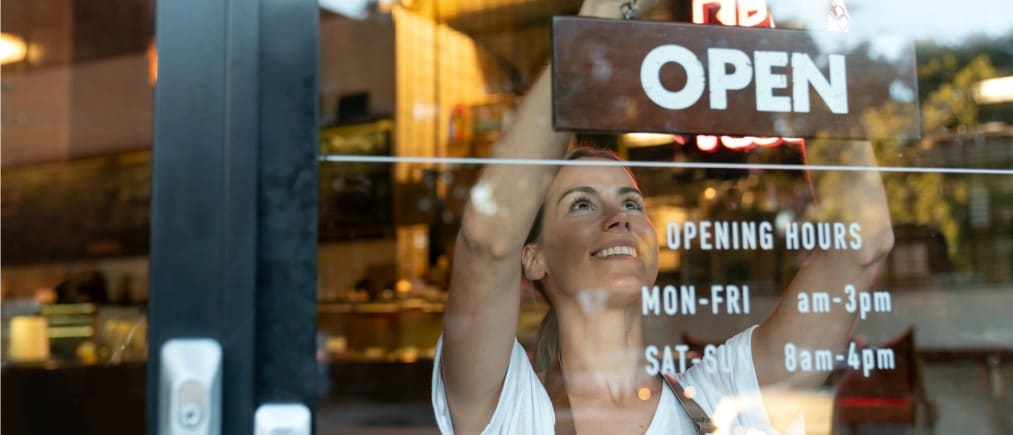It was in the middle of the night in spring 2004 when longtime flight attendant Sandy Stein came up with a business idea that would change the course of her life.
“I was 53 years old and my late father came to me in a dream and explained the product that I was meant to create," remembers Stein, who is based in Los Angeles. “He told me to bend a hook over a cute design and put it on a clasp and said it would be a brand new invention."
Stein woke up the following morning, walked into her home office and followed the instructions from the dream. She attached a clasp to it, slid it on her purse and realized it could be a product that attached to people's keys—a finder for those who frequently lose their keys.
“I called it Finder's Key Purse, which sounds like finders keepers," she says.
She ordered prototype and by the time her new company hit its one-year mark—in spring 2005—she'd already brought in $1 million in revenue. That number was achieved by empowering her fellow flight attendants to sell with her, via a multi-level marketing strategy, thereby giving commission to every seller in the process.
Still, Stein was working full time, expanding her side hustle while she was between flights. She did this through the end of 2005, and then decided to go full time with Finder's Key Purse. Since then, the business has gone through highs and lows (“I've had knock-offs, court cases that I've won and so on, but I've never quit," she says). Today, she brings in around $1 million in revenue per year and isn't showing any signs of slowing down.
When you don't quit, you come up with a new plan. When you don't know how to do something, you figure it out.
—Sandy Stein, founder, Finder's Key Purse
More than 1,000 miles northeast at an office in Denver, Chris Willatt is another person who has successfully turned his side hustle into a $1 million+ per year enterprise. After graduating from college in 2012, he started working as a geologist, shuttling between oil rigs nearly every other week. The lifestyle suited him in the early days, but after getting into a long-term relationship with his girlfriend (now wife), he desired more stability.
He was also fighting boredom when he was home.
“I would work two weeks on, two weeks off and get so bored that one day I decided to start learning how to do programming and web development," he says. “I decided to make a real website and I'd just gone through a bad house cleaning experience—where my cleaners didn't show while I was in the process of moving and I had to do the job—so I put up a site for a cleaning service."
This was summer 2015. After putting up the site, he hired his first contractor, named the company Alpine Maids and left his full-time job in spring of the same year.
“I thought, maybe I'll make an extra $1,000 per month," he remembers.
His business plan: to research review sites for the biggest complaints on maid services, then to pick five of those complaints and create a business that solves for each.
“As an example, one of the biggest complaints people have is that cleaners don't do a good job," says Willatt. “That, at the core, is a communications issue, so we've created a 60-point checklist for our cleaners to go through every time they come into a home."
Today, full-time employees, not contractors, staff his business and he is on par to bring in $1.5 million in revenue by the end of 2019 (“It would make us the biggest maid service in Denver," he says).
Are you, like Willatt and Stein, looking to turn your side hustle into a multi-million-dollar business? If so, take note of these tips.
Focus on Your Values
Willatt is open about his failings as an early manager. He experienced lots of turnover in his first few years in business due to lack of management knowledge, but after hiring a business coach and getting clear on his company's values, these days his employee retention is high and employees are happier.
“If I could do it over again, I'd focus on the values of my company and articulate those from the very beginning," he says. “I had to learn that over three years, and it caused a lot of pain and lost income."
Stick With it
Staying tenacious is one of Stein's biggest pieces of advice. Through many hard times since she started in 2004, she stuck with it and figured out new ways to be successful. The work paid off, even during the darkest moments.
“We almost went out of business about five years ago because of a giant lawsuit where a company overseas had made illegal copycats of our products," she says. “They were selling them for $1 less than ours and flooding the market. Our lawsuit went all the way to federal court and we had a ton of legal fees, but the other company backed down and went out of business.
“When you don't quit, you come up with a new plan. When you don't know how to do something, you figure it out."
Photo: Getty Images



